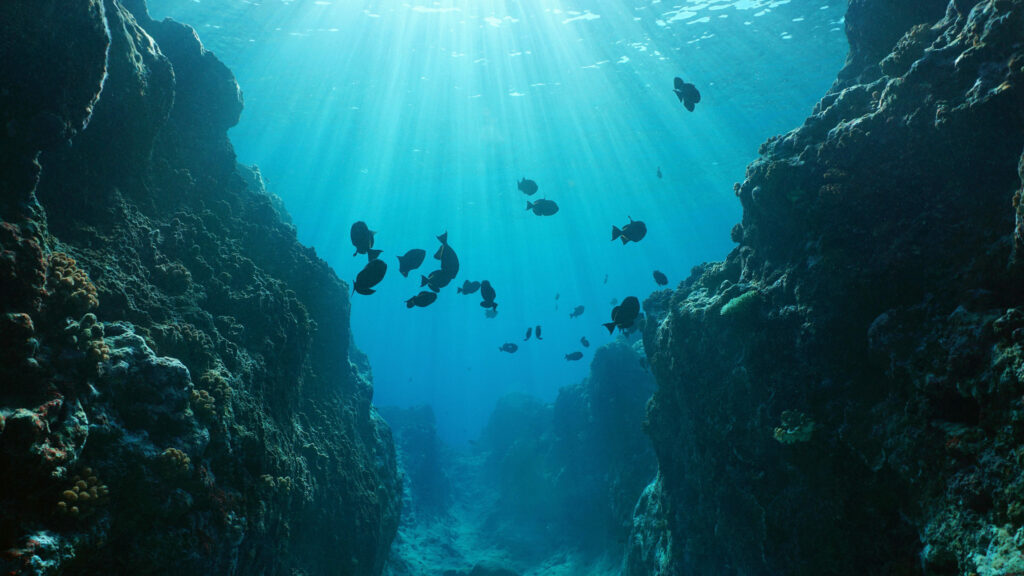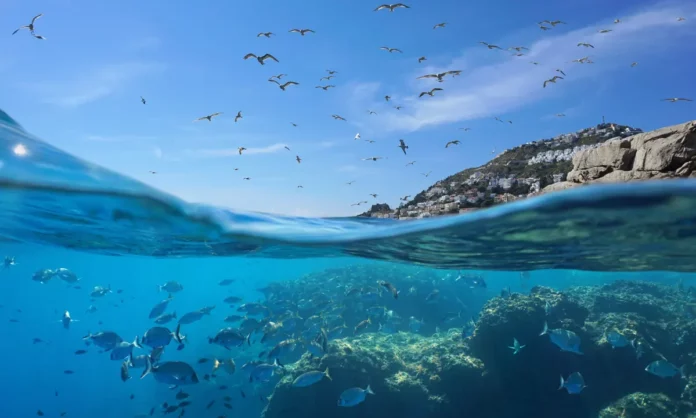Introduction
Welcome to the mesmerizing world of oceans, where vast expanses of water hold secrets and wonders beyond our imagination. In this captivating article, we will embark on a journey to explore the mysteries and beauty of the world’s oceans. From the diverse marine life that inhabits these realms to the essential role oceans play in our planet’s ecosystem, we will unveil the extraordinary aspects of these breathtaking bodies of water. So, strap on your diving gear and get ready for an underwater adventure like no other!
The Significance of Oceans: Life’s Precious Support
Oceans cover approximately 70% of the Earth’s surface, making them an integral part of our planet’s ecosystem. They have a profound impact on climate, weather patterns, and the overall balance of life on Earth. Let’s dive deeper into the significance of oceans and the vital services they provide.
- Climate Regulation: The Ocean’s Thermostat
Oceans act as a crucial regulator of the Earth’s climate system. They absorb and store vast amounts of heat from the sun, helping to stabilize global temperatures. Additionally, ocean currents distribute heat around the world, influencing regional climates and weather patterns. Without the moderating effect of oceans, the planet would experience more extreme temperatures and weather events.
- Oxygen Production: The Breath of Life
One of the most critical functions of oceans is their role in producing oxygen. Through photosynthesis, marine plants, such as phytoplankton, generate a significant portion of the oxygen we breathe. These microscopic organisms convert carbon dioxide into oxygen, playing a vital role in maintaining the balance of atmospheric gases essential for supporting life on Earth.
- Biodiversity Hotspots: A Wealth of Life
Oceans are home to an astonishing array of marine life. From vibrant coral reefs teeming with colorful fish to the majestic presence of whales and dolphins, these underwater ecosystems are rich in biodiversity. The diversity of species found in oceans provides essential ecological services, such as nutrient cycling, food production, and the maintenance of overall ecosystem health.
- Economic Importance: Sustaining Livelihoods
Oceans play a significant role in the global economy, providing valuable resources and supporting various industries. Fisheries and aquaculture sectors rely on oceans for the sustainable harvest of seafood, which is a vital source of protein for millions of people worldwide. Furthermore, industries such as shipping, tourism, and offshore energy extraction contribute to economic growth and job creation.

Exploring Oceanic Marvels: Unveiling Nature’s Splendor
Now that we understand the importance of oceans, let’s dive into the enchanting world beneath the waves. From awe-inspiring underwater landscapes to fascinating marine creatures, there is an abundance of marvels to discover in our oceans.
- Coral Reefs: Rainforests of the Sea
Coral reefs are among the most biodiverse ecosystems on the planet, often referred to as the “rainforests of the sea.” These vibrant underwater communities provide a habitat for a multitude of marine species, offering protection, food sources, and breeding grounds. Coral reefs also attract snorkelers and scuba divers from around the world, eager to witness their breathtaking beauty.
- Marine Megafauna: Giants of the Deep
The oceans are home to magnificent creatures that captivate our imaginations. From gentle giants like the majestic blue whale, the largest animal on Earth, to the graceful movements of manta rays and the playful antics of dolphins, marine megafauna inspire awe and wonder. Observing these magnificent creatures in their natural habitats is an experience that leaves a lasting impression.
- Bioluminescence: Nature’s Light Show
In the depths of the oceans, a mesmerizing phenomenon occurs. Bioluminescent organisms, such as glowing plankton and deep-sea creatures, emit light, transforming the darkness into a magical spectacle. This natural light show serves various purposes, including communication, camouflage, and attracting prey. Witnessing the ethereal glow underwater is a truly enchanting experience.
- Underwater Volcanoes: Unveiling Hidden Forces
Beneath the ocean’s surface, a world of volcanic activity exists. Underwater volcanoes, also known as seamounts, create awe-inspiring landscapes and serve as hotspots of biodiversity. These volcanic structures provide habitats for a diverse range of species, including unique deep-sea organisms that have adapted to survive in extreme conditions.
Frequently Asked Questions (FAQs)
FAQ 1: How deep is the deepest part of the ocean?
The deepest part of the ocean is the Mariana Trench in the western Pacific Ocean, reaching a depth of approximately 36,070 feet (10,972 meters). This immense trench is home to fascinating deep-sea creatures adapted to survive in the extreme pressure and darkness of the deep ocean.
FAQ 2: Can humans explore the deepest parts of the ocean?
Exploring the deepest parts of the ocean is a remarkable feat that has been achieved by only a few brave individuals. In 1960, Jacques Piccard and Don Walsh descended to the bottom of the Mariana Trench in the Bathyscaphe Trieste, setting a record for the deepest manned dive. More recently, in 2019, Victor Vescovo reached the bottom of the Challenger Deep, the deepest point in the Mariana Trench, in the submersible DSV Limiting Factor.
FAQ 3: Are there undiscovered species in the oceans?
Yes, the oceans still hold countless undiscovered species. With vast areas yet to be explored, scientists estimate that the majority of marine species are yet to be identified. The deep sea, in particular, remains a frontier of discovery, with new species constantly being found in the darkest depths of the ocean.
FAQ 4: How do oceanic ecosystems contribute to the overall health of the planet?
Oceanic ecosystems play a crucial role in maintaining the overall health of the planet. They help regulate the carbon cycle by absorbing and storing large amounts of carbon dioxide, a greenhouse gas responsible for climate change. Additionally, oceans support the intricate food chains that sustain life on Earth and contribute to the overall balance of the biosphere.
FAQ 5: What are the major threats to the oceans?
The oceans face various threats that endanger their delicate ecosystems. Some of the major threats include overfishing, pollution (such as plastic waste and oil spills), habitat destruction (such as coral reef bleaching and coastal development), and climate change (leading to rising sea temperatures, ocean acidification, and sea-level rise). Efforts to mitigate these threats and protect oceanic ecosystems are crucial for the preservation of marine life and the well-being of the planet.
FAQ 6: How can individuals contribute to the conservation of oceans?
Individuals can make a positive impact on ocean conservation through simple actions. These include reducing plastic consumption, properly disposing of waste, supporting sustainable seafood choices, participating in beach cleanups, and promoting awareness about the importance of oceans. By making conscious choices in our daily lives, we can collectively contribute to the preservation of these precious ecosystems.
Conclusion
In conclusion, oceans are awe-inspiring realms of wonder and significance. From their vital role in supporting life on Earth to the captivating beauty of marine ecosystems, they deserve our utmost admiration and protection. By understanding the importance of oceans and the threats they face, we can work towards a sustainable future that ensures the preservation of these majestic bodies of water. So, let’s join hands in safeguarding our oceans and embark on a journey of exploration, appreciation, and conservation.
============================================


